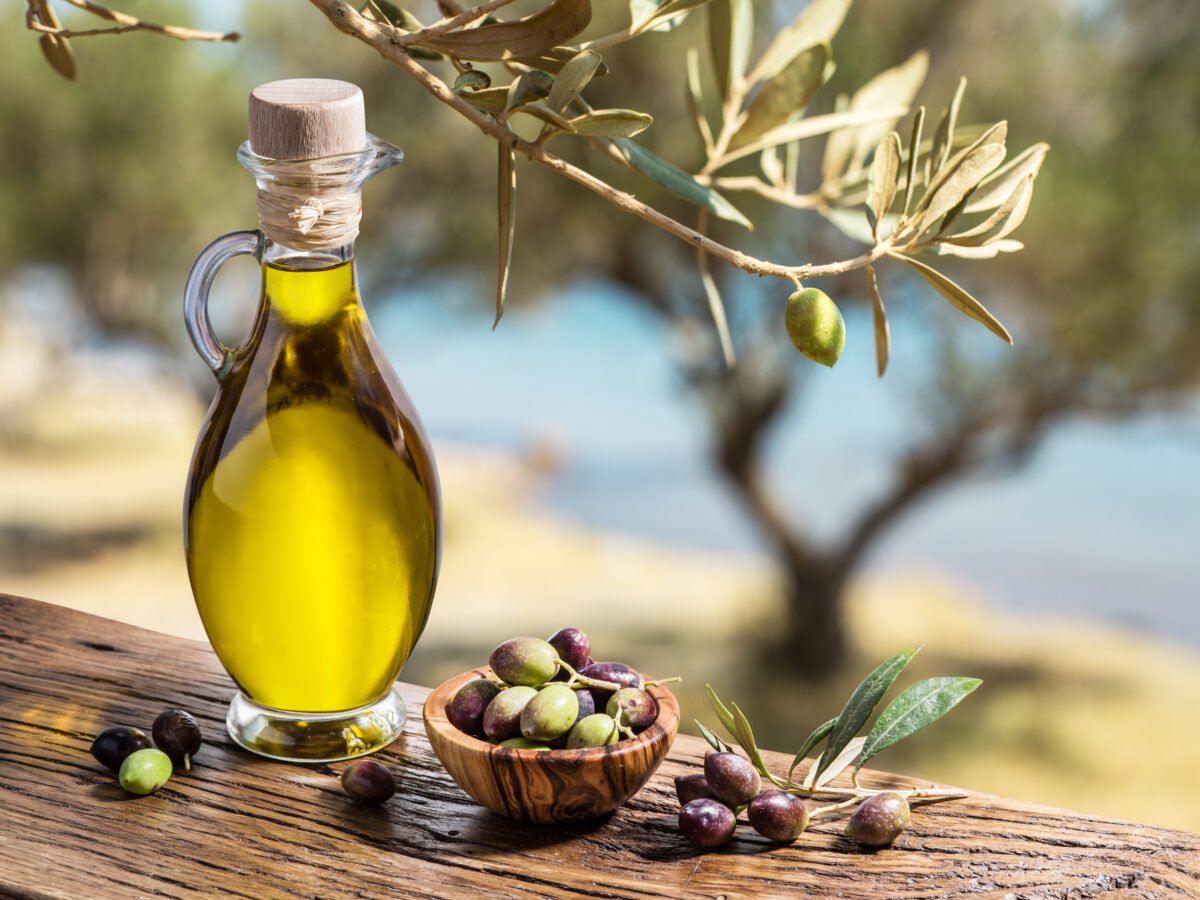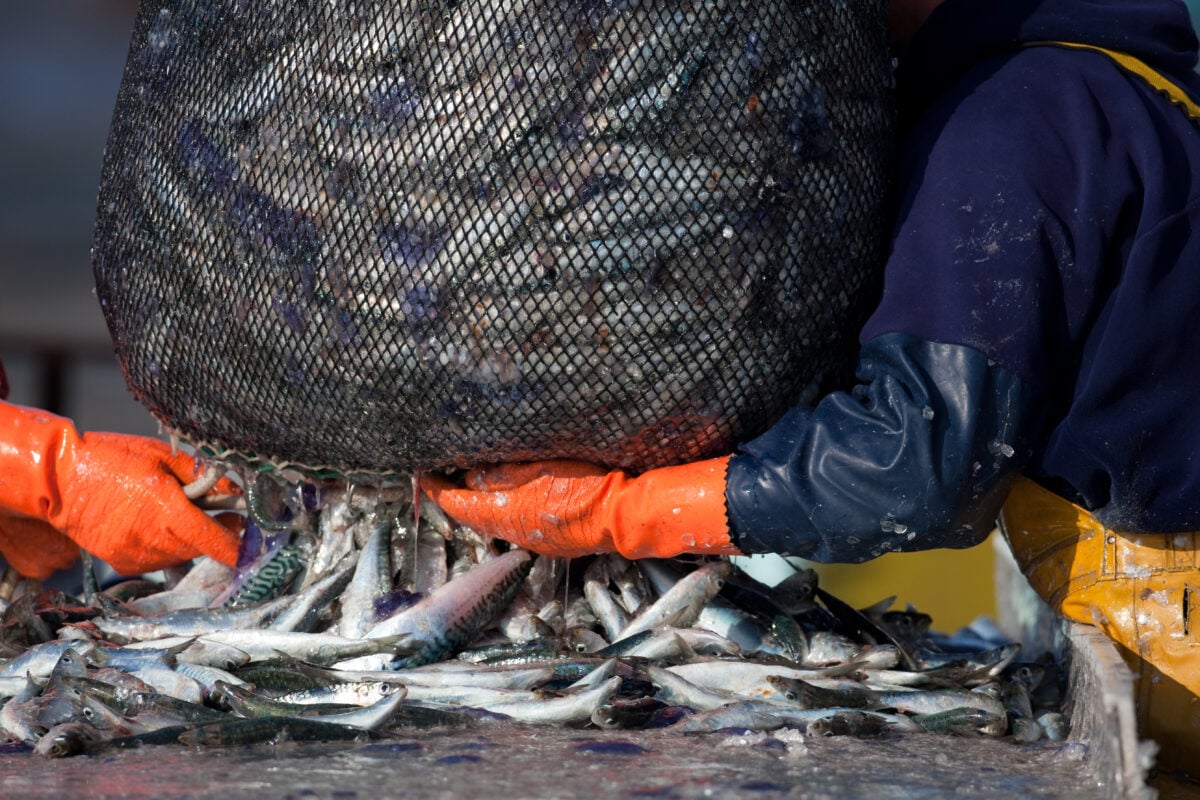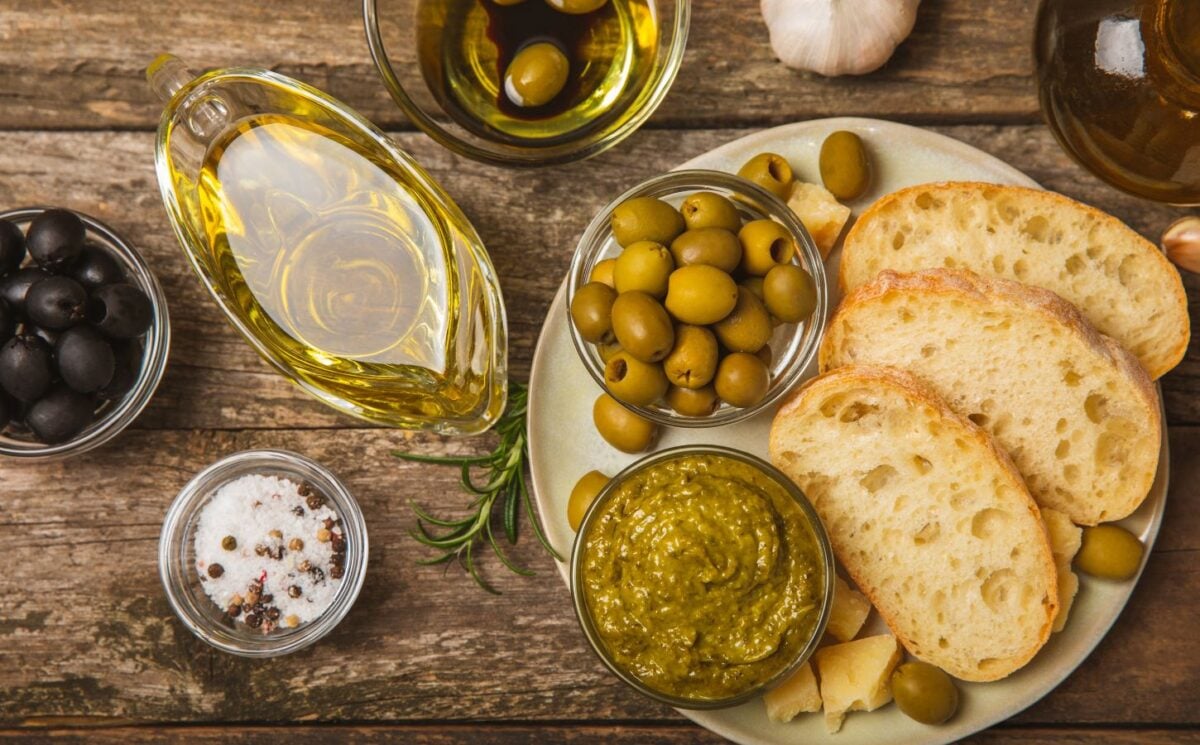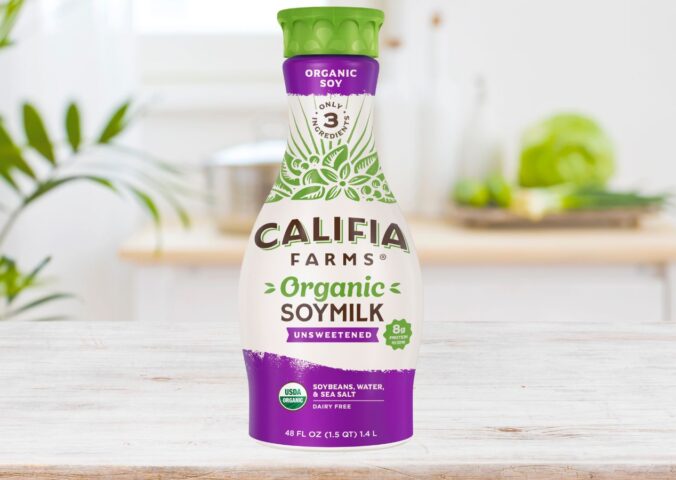Over the last year, the Mediterranean diet has been surging in popularity. It was dubbed “2023’s hottest new diet trend,” and it counts Selena Gomez, Jennifer Aniston, and Penelope Cruz among its fans. It’s often believed to be one of the best diets humans can follow, but is this true? In this guide, we put the Mediterranean diet up against the plant-based (vegan) diet, exploring which is healthier, more ethical, and better for the planet.
The term “Mediterranean diet” was coined in the 1950s by a University of Minnesota researcher named Ancel Keys. It originally revolved around popular foods found in the southern Italian village of Nicotera, whose inhabitants prioritized fruits and vegetables over excessive animal protein. Keys noticed that this region had the highest number of centenarians in the world, which led him to hypothesize that replacing saturated fats with polyunsaturated fats would reduce the risk of heart disease. He is regarded as the first person ever to reach this conclusion.
Now, the Mediterranean diet refers to a way of eating that reflects the traditional diets of people living in a number of European countries bordering the Mediterranean Sea. These include Greece, Italy, and Spain. It’s not a strict diet plan, but rather a set of guidelines based on eating habits in these regions. Unlike the Standard American Diet (SAD), which is high in red meat and dairy, the Mediterranean diet emphasizes mostly minimally processed plant foods. These include whole grains, legumes, nuts, seeds, fruits, and vegetables, as well as olive oil.
The diet is not animal-free, however, as followers are encouraged to eat fish and chicken, as well as small amounts of dairy yogurt and cheese.
There’s no doubt that the Mediterranean diet is healthier, better for the planet, and more ethical than traditional American diets due to its relatively moderate animal product consumption, but is there a better alternative?
Mediterranean diet versus plant-based: which is healthier?

The Mediterranean diet is popular first and foremost for its widely publicized health benefits.
By abstaining from red meat, followers avoid the high saturated fat, cholesterol, and sodium contents of foods like bacon, beef, and sausages.
Processed meat – such as bacon, beef jerky, ham, hot dogs, and sausages – has been classified as a group one carcinogen by the World Health Organization. This is the same group as asbestos and tobacco smoking. While this doesn’t mean that processed meat is equally harmful to these things, the classification indicates that there is “sufficient evidence” that eating these products causes cancer (in this case, colorectal cancer).
Red meat consumption is also linked to increased risk of a number of other diseases. A study published in October 2023 found that just two servings a week raised type 2 diabetes risk. Another published in 2022 found that red meat increased risk of heart disease by 22 percent. In January 2024, research found that the England National Health Service (NHS) could save £6.7 Billion (USD $8.4 billion) if the whole nation went plant-based.
Clearly, cutting out red meat is beneficial for health. But should we go further?
Is a Mediterranean diet healthy?
“While the Mediterranean diet is known for its positive effects on heart health and overall well-being, a plant-based diet offers similar benefits with added advantages,” Lisa Marley, nutrition coach and plant-based chef tells Plant Based News (PBN). “Plant-based diets are rich in fiber, vitamins, minerals, and antioxidants, which can help lower the risk of chronic diseases like heart disease, diabetes, and certain types of cancer.”
Chicken, dairy, and fish, which are all allowed in the Mediterranean diet, are often considered healthy foods. But these claims are increasingly being questioned.
“It’s important to note that these animal-based foods can contribute to saturated fat and cholesterol intake, which may increase the risk of heart disease and other health issues,” Chicken and cheese, adds Marley, are both high in saturated fat and sodium, “which can negatively impact heart health if consumed in excess.”
Fish is often considered a hugely healthy food. The NHS website even states that “most of us should have more fish in our diet.” But is a diet high in fish really that healthy? “While fish can be a source of omega-3 fatty acids, there are concerns about mercury contamination in certain types of fish,” says Marley.
Mercury is a liquid metal that’s toxic to humans when consumed. It’s a naturally occurring element, which is found in water due to industrial pollution. After it enters the water, it converts into the highly toxic methylmercury, which is then consumed and absorbed by fish and other organisms. As bigger fish eat smaller fish, their mercury levels steadily build up over time. This means that predator fish tend to have the highest mercury levels, including sharks (which are often sold unknowingly to customers), swordfish, and king mackerel. While omega-3 is found in fish, it can easily be consumed by humans in for form of algae (where fishes also get theirs from).
Health benefits of a plant-based diet
Marley says that a plant-based diet “eliminates these potential health risks associated with animal-based foods.” She adds that it “offers a wide range of nutrients that are beneficial for overall health.”
“Plant-based diets are also more inclusive of a variety of wholefoods and can be tailored to meet individual dietary preferences and needs,” she says.
In a recent episode of podcast The Diary of a CEO, hosted by Steven Bartlett, renowned plant-based doctor Dr Neal Barnard discussed the benefits of a plant-based over Mediterranean diet. He referenced a 2022 study conducted by him and his team, which followed 62 participants. Half of the participants followed a low fat vegan diet, while the others followed the Mediterranean diet. Mid way through the study, the groups swapped diets. The study found that, while blood pressure decreased on both diets, those on the low fat vegan diet saw “improved” body weight, lipid concentrations, and insulin sensitivity when compared with those on the Mediterranean diet.
Numerous studies have found that healthy plant-based diets can offer positive health outcomes. Earlier this year, Dr Tedros Adhanom Ghebreyesus – the head of the World Health Organization – urged a shift towards more plant-based diets, stating that our food system is “responsible for almost one third of the global burden of disease.”
Mediterranean diet versus plant-based: the environment
Many people believe that cutting down on animal products is enough to reduce their impact on earth. But there’s no doubt that dropping them from your life completely is by far the best course of action.
It’s true that the Mediterranean diet is preferable to a diet high in red meat. Beef and lamb are regarded as the most environmentally destructive foods we can eat. As well as using up huge amounts of land and driving deforestation, a kilogram of beef emits 60 kilograms of greenhouse gasses. For comparison, a kilogram of peas emits one kilogram for the same amount. Methane is the biggest culprit when it comes to emissions from ruminant animals like cows and sheeps. “Livestock” is responsible for around a third of human-caused methane. It’s a powerful greenhouse gas that’s 80 times more warming than carbon dioxide in its first 20 years in the atmosphere, but it also has a much shorter half life, meaning it lingers for less time. This means that cutting methane emissions would reduce warming quickly, buying us more time to address carbon emissions.
Clearly, cutting red meat out of your diet is a good step forward for the planet, but that doesn’t mean it’s the be all and end all. The Mediterranean diet allows chicken, dairy, and fish, but are these environmentally-sound choices?
The problem with chicken
Chickens are by far the most farmed land animal on the planet. Appetite for chicken has also skyrocketed over the years, meaning chicken farming has become big business. It’s thought that more than 70 billion are killed each year, and the vast majority are factory farmed.
Chicken is often regarded as a planet-friendly food. One article recently claimed that a “chickentarian” diet could be a sustainable alternative to veganism. While chicken produces less emissions than beef and lamb, that doesn’t mean it’s environmentally-friendly.
“Chicken does have a lower carbon footprint than beef or pork but it’s still three times higher than even the highest emitting plant protein, like soy, and almost ten times higher than peas,” Nicholas Carter, ecologist and data scientist from Plant Based Data, tells PBN.
The first environmental problem with chicken is their diet. There’s a commonly held belief that vegans are responsible for deforestation due to their appetite for soy milk and burgers, but the vast majority (77 percent) of the world’s soy is fed to factory farmed animals, mostly chickens. Only around seven percent is made into soy milk, tofu, and other similar foods. The European Union is the second largest importer of Brazilian soy, which it predominantly uses to feed its chickens. The UK imports 3 million tonnes each year. Brazil produces 20 times as much soy now as it did 20 years ago.
According to Carter, this method of production is hugely unsustainable. “For every 100 calories of grain fed to chickens, people only return about 12 calories of meat,” he says. “That’s almost a 90 percent loss, which happens because of course these are functioning living animals.”
Chicken farms are also causing a huge amount of pollution. Waste from the farm (manure, feed, corpses etc) is generally far too much for the land to absorb, and it runs into waterways, causing algal blooms and killing water wildlife. Factory farming of chickens is now a leading cause of water pollution, and people living close to chicken farms are also forced to breathe in polluted air that’s thick with dust and ammonia.
The environmental cost of fish

Carter says that the “biggest environmental footprint” of the Mediterranean diet is the moderate to high consumption of fish. Eating fish is the most significant driver of biodiversity and wildlife loss in the ocean.
Trillions of marine animals are taken from the ocean each year, and modern industrial fishing methods use massive nets and long lines to catch huge numbers at a time, including any unintended animal that gets in their way. Many fish products market themselves as “sustainable,” but it’s well-established that there can be no sustainable fish products while the oceans are so depleted.
Carter points to a recent report that found that nearly all (97 percent) of Convention on Migratory Species (CMS)-listed fish are threatened with extinction, including migratory sharks and freshwater sturgeon. “Sharks are less than 10 percent of their original population. Most whales are less than 1 percent of original populations. A global adoption of a Mediterranean diet that includes higher than average fish consumption would wreak havoc on our oceans,” he says.
But consumption of ocean-caught fish isn’t the only issue.
“More than half of all fish now globally comes from fish farms, some of which have higher footprints than wild caught fish, especially when popular carnivorous fish like salmon are involved that require more fish to be killed than the fish one gets out of farming them,” says Carter.
Mediterranean versus plant-based: which is more ethical?
If you have animals on your mind, there’s no doubt that plant-based is a more ethical alternative to the Mediterranean diet.
The idea that reducing, rather than eliminating, animals from your diet is an ethical choice doesn’t take into account that each animal is an individual. Even if someone were to eat just one fish a year, that fish will still have had their life taken from them against their will. Reducing animal product consumption, as adopters of the Mediterranean diet often do, still contributes directly to animal suffering.
In many countries in the world, including the UK and USA, chickens are selectively bred to grow as fast as possible so they’re ready to be slaughtered at six weeks. They have been dubbed “Frankenchickens” due to how unnatural they are. If a human baby were to grow as fast as they did, the baby would be the size of an adult tiger at nine weeks old. Due to their size, chickens are often immobile and suffer from painful injuries and broken bones. They will often be kept in vast sheds with thousands others, with each being afforded a space smaller than the size of an A4 sheet of paper.
The dairy industry is also widely regarded as cruel. Cows must give birth to a baby in order to produce milk. And in order for humans to take her milk, the baby must be taken away. Like humans, cows form powerful bonds with their young, and they often bellow and cry out for days after they’re gone. If the calf is male, they will either be killed or sold to the veal industry. If they’re female, they will be raised for dairy as well. The cycle of impregnation and milking takes place about once a year until the cow’s body wears out. They are then sent to the slaughterhouse.
But what about fish? Many who espouse the benefits of the “pescatarian” diet believe that eating fish is a more ethical alternative to land animals. It’s a commonly held belief that fishes are less sentient and less able to feel pain than humans, but this belief is increasingly being questioned. One 2010 book – titled Do Fish Feel Pain? – argues that “there is as much evidence that fish feel pain and suffer as there is for birds and mammals.” Fishes have a nervous system, just like mammals, and multiple studies have shown that they respond when subjected to experiences that would cause pain in humans. The number of fishes we kill each year is almost incomprehensible, around two trillion, meaning the suffering we subject them to is vast.
Can you do a plant-based Mediterranean diet?
The plant-based and Mediterranean diets have a great deal of overlap, with both promoting a wide array of fruits and vegetables, as well as legumes and grains. By going from a meat-heavy to a healthy plant-based diet, you will be doing more good for the animals and the planet than you would if embarking on a traditional Mediterranean diet featuring animal products.
You can also easily replicate a more authentic Mediterranean diet with plant-based foods. For example, you can put dairy-free feta in your Greek salad, meat-free chicken in your souvlaki, and you can even choose from the wide array of plant-based seafood options now available.






